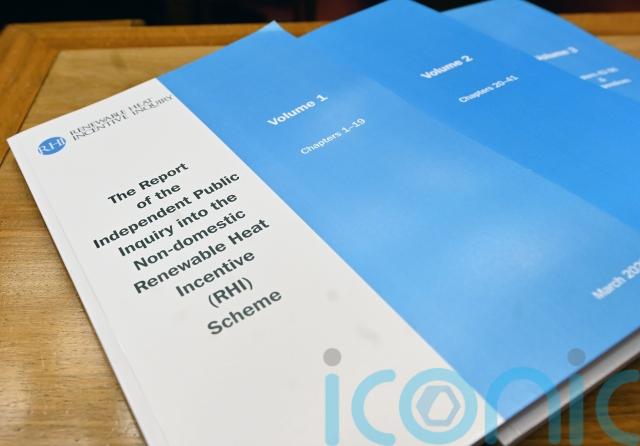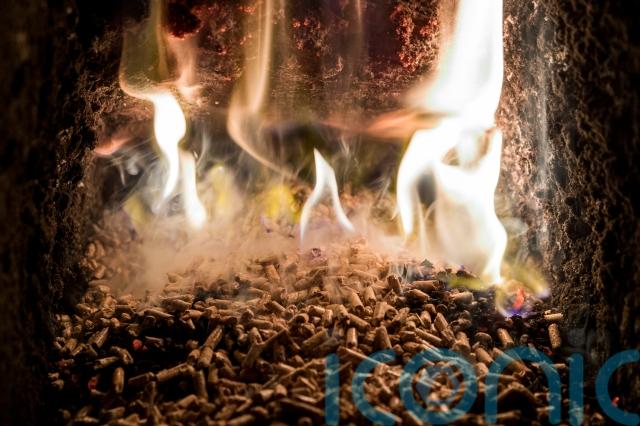
Proposals to wind up the troubled renewable heat incentive (RHI) scheme represent the continuation of payments rather than closure, the chairman of a Stormont committee has said.
Phillip Brett made the remarks as officials from the Department for the Economy delivered a briefing on the RHI Closure Bill.
Economy Minister Caoimhe Archibald recently announced that the Executive had formally agreed a pathway to closing the scheme, which would see an uplift in the tariff rate for those using the boilers this winter.
The RHI scheme, set up in Northern Ireland in 2012, incentivised businesses and farmers to switch to eco-friendly boilers by paying them a subsidy for the wood pellet fuel needed to run them.
But mistakes in its designs meant the subsidy rates were set higher than the actual cost of the wood pellets, and applicants found themselves able to “burn to earn”.

The scandal contributed to the collapse of devolved government in Northern Ireland in January 2017, when former deputy first minister Martin McGuinness took issue with the DUP’s handling of the scheme.
With Stormont facing an overspend bill of hundreds of millions of pounds, cost-control steps were taken in 2019.
The New Decade, New Approach agreement, which restored the Stormont institutions in 2020, included a commitment that RHI would be closed down and replaced by another scheme to reduce carbon emissions.
The same year, a public inquiry identified a multiplicity of mistakes in the running of the RHI scheme.
There are currently 1,100 participants in the RHI scheme, with just less than 2,000 boilers in Northern Ireland.
Sarah Brady, the Department for the Economy’s director of energy operations, told the Economy Committee that the RHI Closure Bill would provide the department with the power to “formally close the scheme”, with regulations to come later.
She said the proposed approach involved transitioning from quarterly meter payments to annual closure payments for scheme participants.
She said closure payments would continue until the end of each participant’s original 20-year accreditation period, provided boilers stay in use.
DUP committee chairman Mr Brett said: “The Bill says RHI closure, but it’s not really RHI closure.”
Ms Brady responded: “It is RHI closure. It is the drawing of a line under the old RHI … the participants in the scheme have rights to receive payments.”
She said the department had examined the potential for a single payment scheme but decided an annual payment was fairer.
She said: “If the installation stops being used, the payment stops.”
Mr Brett said: “The scheme has been closed to new applicants from 2017 and anyone that entered in and got the accreditation for 20 years will continue to get that payment.
“It is a continuation of payments for people, rather than a closure, because it has already been closed to new applicants.”
Ms Brady said: “It is a transitioning to legacy arrangements for the participants.”
She told the committee that the cost of closing the scheme and making payments would be £196 million, with an additional £17 million for administration, auditing and ensuring compliance.
She said the Treasury had approved the costs of the closure scheme.
Alliance MLA David Honeyford said: “You are not closing the system, you are basically taking the 2012 Act and you are running it for 20 years.”
Mr Honeyford asked about the process of checks on the usage of boilers.
Ms Brady said: “Participants will be asked to sign an annual declaration truthfully, they will also be asked to provide evidence, such as photographs of their installations still in situ and evidence of their maintenance and fuel purchasing records.
“That will let us know if somebody is doing something wrong. Plus we will have a physical inspection, an audit process.”

Mr Honeyford said: “I agree with the principle of closing RHI. I am really uncomfortable giving the department the power to do whatever they want without scrutiny and that is what this feels like.”
Ms Brady said: “That is why we are consulting on the policy proposals for how closure would work in practice.
“When the consultation is finished and the proposals are there in detail we will be coming back with the closure regulations.”
Subscribe or register today to discover more from DonegalLive.ie
Buy the e-paper of the Donegal Democrat, Donegal People's Press, Donegal Post and Inish Times here for instant access to Donegal's premier news titles.
Keep up with the latest news from Donegal with our daily newsletter featuring the most important stories of the day delivered to your inbox every evening at 5pm.